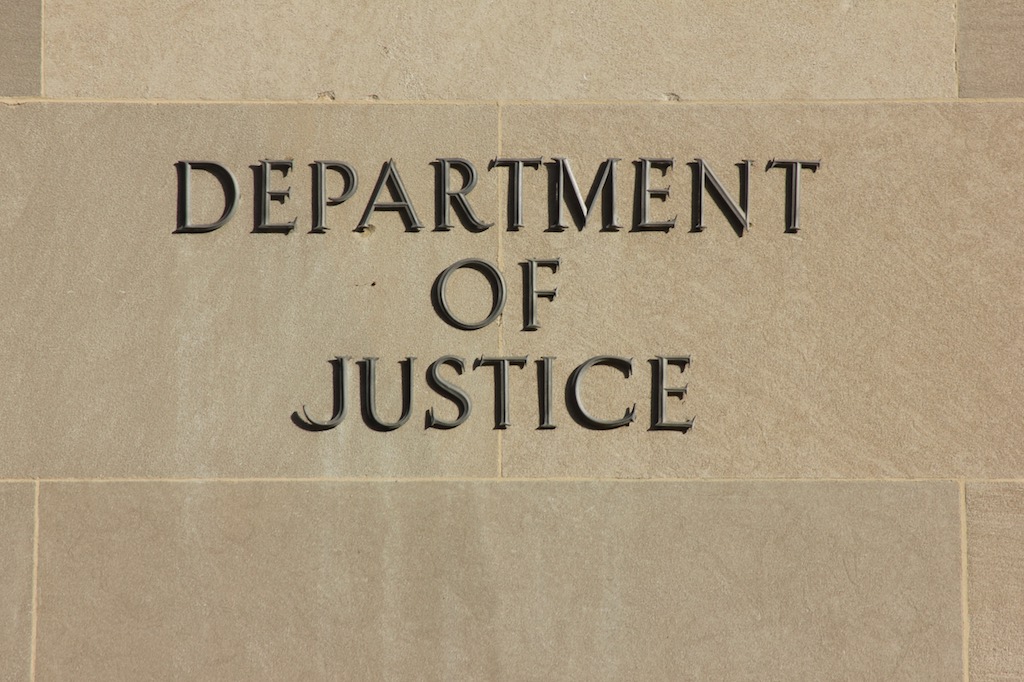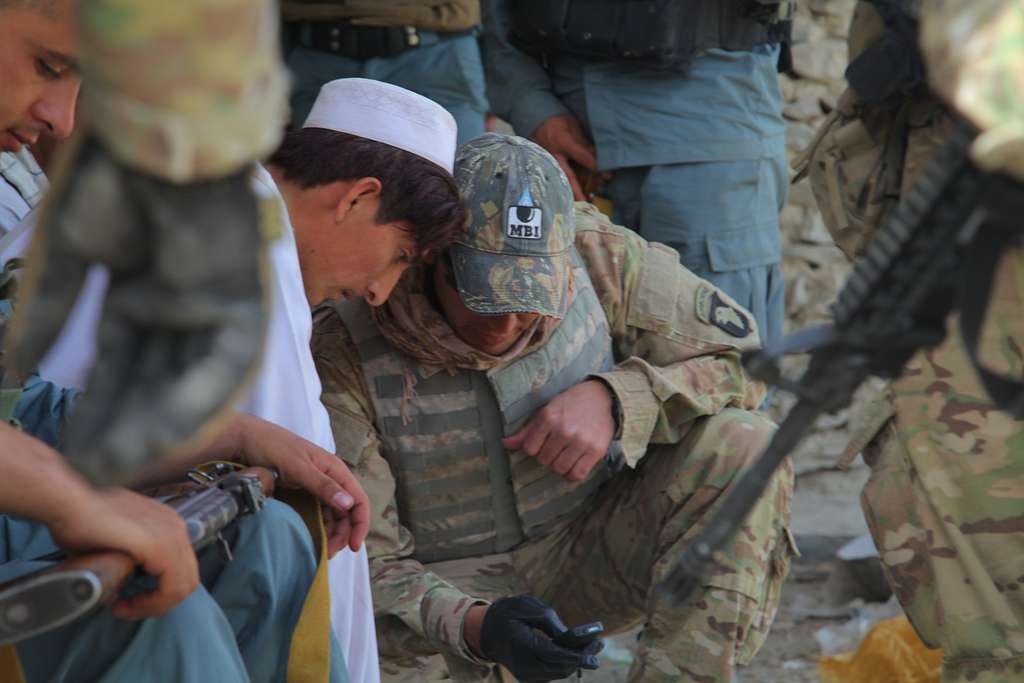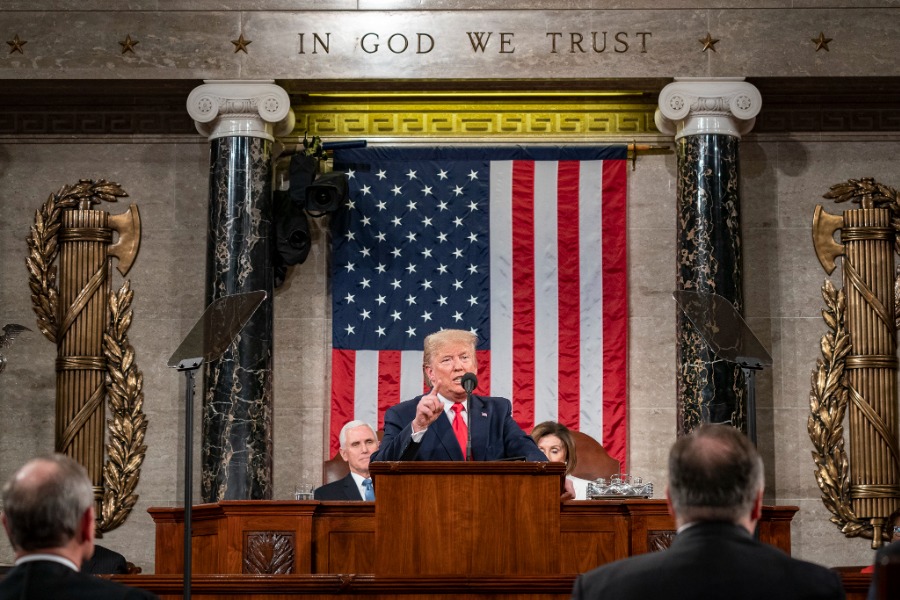The New OLC Opinion on Syria Brings Obama Legal Rationales Out of the Shadows
The opinion on the April 2018 airstrikes against Syrian chemical-weapons facilities follows straightforwardly from Obama-era legal opinions, including one we did not know about until today.

Published by The Lawfare Institute
in Cooperation With

There has been some heavy breathing in reaction to Steven Engel’s Office of Legal Counsel opinion released today in support of President Trump’s April 13, 2018 airstrikes in Syria. The opinion does indeed articulate an extraordinarily broad conception of the president’s authority to use military force abroad through air strikes without congressional authorization. But the opinion is in no way surprising. It follows straightforwardly from Obama-era legal opinions (including one we did not know about until today), which themselves built on earlier opinions.
The opinion deploys the two-part framework that Caroline Krass’s 2011 OLC opinion on Libya gleaned from prior OLC opinions. First, does unilateral presidential force serve important national interests? If so, the president is authorized to use force unless, second, the “anticipated nature, scope and duration” of the conflict rises to the level of a “war” under the Constitution, in which case congressional approval may be necessary. Engel’s opinion, like Krass’s, concludes that the use of force in question does serve important national interests and does not rise to the level of war that requires congressional authorization.
As to the first prong, as Engel notes, OLC “has recognized that a broad set of interests would justify use of the President’s Article II authority to direct military force.” Engel cites three interests: “the promotion of regional stability, the prevention of a worsening of the region’s humanitarian catastrophe, and the deterrence of the use and proliferation of chemical weapons.” The first one is an old one, but the second and third are new, at least in published OLC opinions. However, both of these “new” interests were secretly acknowledged to suffice as bases for unilateral force by the Obama administration.
The big piece of news in Engel’s opinion is that the Obama-era OLC had, in an unpublished 2014 opinion, previously acknowledged an interest in mitigating humanitarian disaster as a basis for unilateral presidential force under Article II. (See Karl R. Thompson, Principal Deputy Assistant Attorney General, Office of Legal Counsel, Re: Authority to Use Military Force in Iraq at (Dec. 30, 2014).) I suspect, but do not know, that this opinion was written to buck up the president’s unilateral humanitarian interventions in Iraq in the summer of 2014. As I noted at the time in connection with analyzing the types of national interests that might justify intervention, “if the President has inherent authority to use U.S. military force for a pure humanitarian intervention that he alone defines, then one of the last threads of limitation within the Executive precedents – at least for “force from a distance” (drones, cyber, and the like) – will be eliminated.” What I did not know then was that the Obama OLC had recognized this Article II interest in mitigating humanitarian disasters in an official opinion.
The chemical-weapons interest had also been previously floated by the Obama administration. In August 2013, President Obama announced that he possessed “the authority to carry out … without specific congressional authorization” a military intervention in Syria in response to Assad’s use of chemical weapons. (Obama did not follow through on his pledge to bomb Syria in 2013.) In justifying that planned use of force to the nation, President Obama several times reiterated the need to hold the Assad accountable for its use of chemical weapons. According to Charlie Savage’s “Power Wars,” Obama’s top national security lawyers—in an undated, unsigned memorandum—advised the president on his legal authorities in a “hypothetical case” involving the use of force against Assad in response to his deployment of chemical weapons. The memo advised the president that, in the hypothetical case, he could “cite national interests in,” among other things, “trying to impede the use or proliferation of chemical weapons.” The lawyers who worked on the memo also, according to Savage, urged the president “to consider going to Congress before striking Assad’s forces, even though they did not say it would be required.”
For these reasons, on the national-interest prong the Engel opinion does little other than surface and elaborate upon rationales for unilateral uses of presidential force secretly acknowledged by the Obama administration. I do not mean to downplay the significance of Engel’s analysis or conclusion. The Justice Department now officially and publicly believes the president can use significant air power, without congressional authorization, on the grounds of humanitarian intervention and deterrence of the use of chemical weapons.* But no one should be surprised by this conclusion, since it was obvious in the Obama era. As Matt Waxman and I wrote in our 2016 analysis of the Obama war-powers legacy: “President Obama has established that the president can deploy significant unilateral military force whenever s/he perceives a threat to regional stability and human rights or other established international norm” such as the use of chemical weapons.
There is also nothing new in the second prong of Engel’s analysis. Clearly, a single night of airstrikes does not amount to the “prolonged and substantial military engagement” that the 2011 Krass opinion said would be needed to possibly require congressional approval. Indeed, Trump’s Syria strikes were far less intense than President Obama’s multi-month unilateral use of air force in Libya. And as Engel points out, the Trump administration took significant steps to avoid escalation, which is also part of the Krass test.
In other ways, the Engel opinion does not go as far as one might have expected. He does not, for example, rely on the extremely broad war-powers rationales that are still on the books from early in the George W. Bush era. Rather, Engel situates the use of force in Syria in a framework first articulated by Walter Dellinger as the head of the OLC in the 1990s and further elaborated upon in the Obama era.
And what about Engel’s failure to examine the legality of the use of force under international law? I think the Syria action is impossible to square with the U.N. Charter, though (obviously) not everyone agrees. But it is not surprising that OLC ducked that issue. The Clinton administration never explained in a published opinion the domestic or international legal basis for its use of force in Kosovo in 1999 without U.N. Security Council authorization. (It will be interesting to see if the unpublished 2014 Obama administration OLC opinion for Iraq analyzed the international law issue. Charlie Savage has probably already drafted the FOIA request.)
I suppose that the Trump administration could have mouthed some diplomatic gobbledygook, as State Department lawyer Mike Matheson did in explaining the Kosovo intervention. Matheson famously said that the Kosovo intervention was based on a “unique combination of factors” that offer “a pragmatic justification designed to provide a basis for moving forward without establishing new doctrines or precedents.” I.e. “illegal but legitimate,” or something like that. Or perhaps OLC or some other lawyers in the government could have done what the British government recently did and assert that the U.N. Charter permits humanitarian interventions under some circumstances. I would bet that there is an opinion somewhere in the U.S. government—maybe in the Defense or State Departments—that says just that.
The bottom line on the Engel opinion is this: It breaks no new legal ground under U.S. domestic law, but it brings out of the shadows precedents and rationales that have been building in support of the humanitarian-intervention idea for some time now. All in all, a happy day for Harold Koh.
* We don’t know—because there is no way to know based on the OLC opinions—whether the interests recognized by Engel or in other OLC opinions would suffice if only some or one were present. Nor is there any reason in the opinions to think that OLC will not recognize different interests in the future. The opinions certainly recognize no natural limits on the interests that will suffice to support Article II uses of force.





